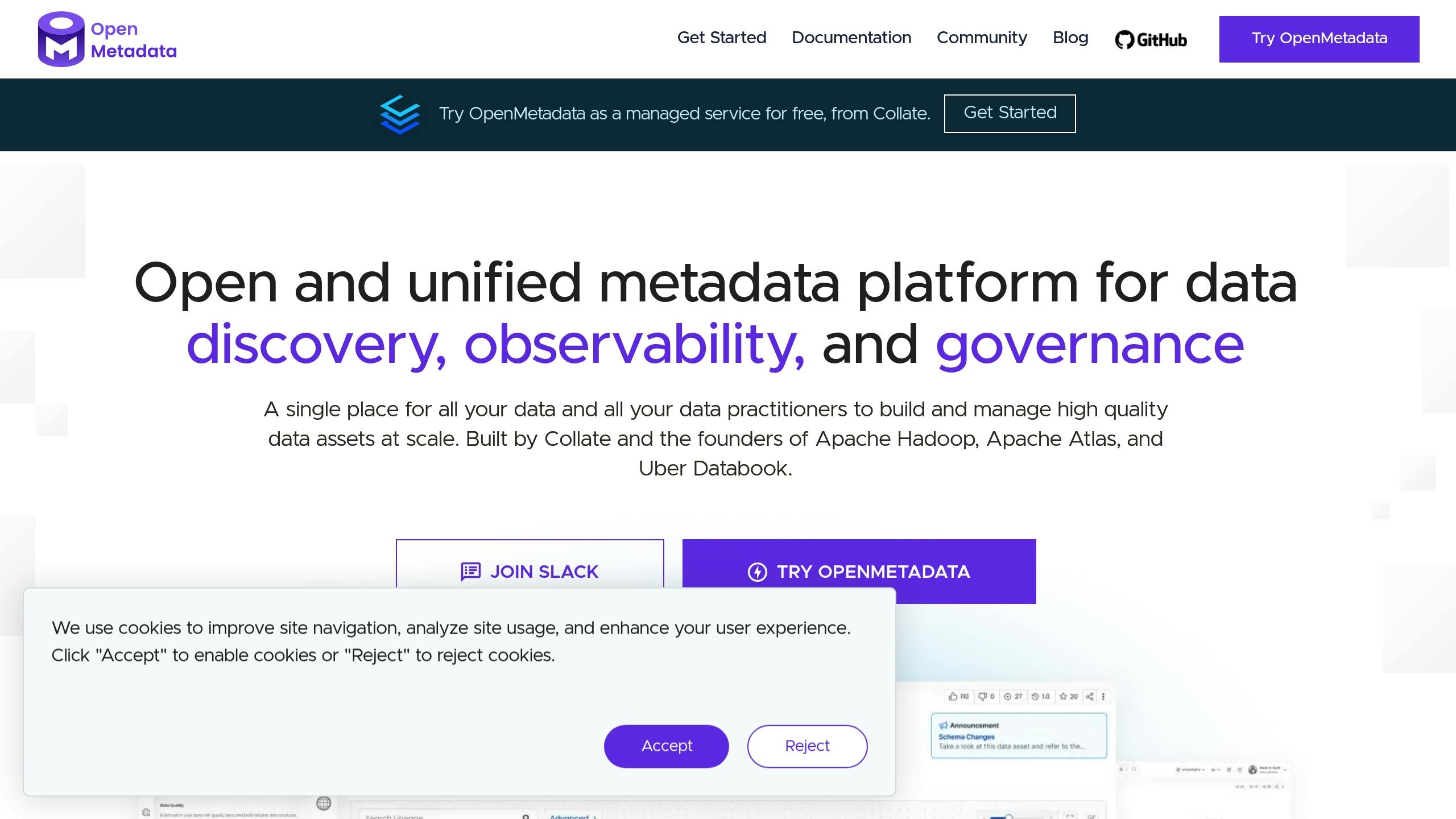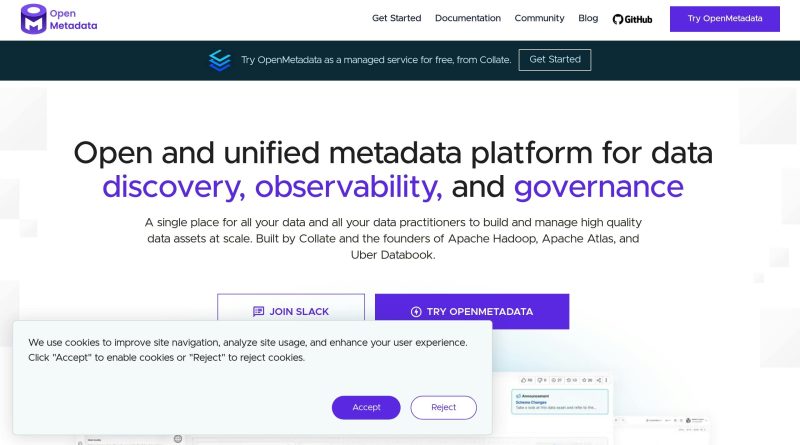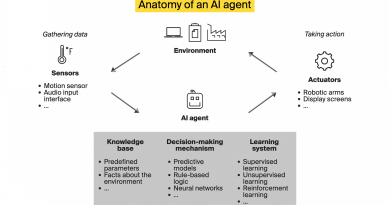How to Use Open-Source Tools for Data Governance
Open-source instruments will help you handle your group’s knowledge successfully with out costly licensing charges. They provide value financial savings, customization, and neighborhood assist, making them an ideal alternative for bettering knowledge high quality, safety, and compliance. Here’s what you want to know:
-
Why Open-Source?
- No licensing prices and decrease setup bills.
- Customizable options to suit your wants.
- Active communities for assist and updates.
-
How to Choose the Right Tool:
- Look for robust safety features like encryption and entry controls.
- Ensure compliance assist with audit trails and knowledge lineage monitoring.
- Check for scalability and integration together with your present techniques.
-
Top Tools to Explore:
- Apache Atlas: Best for metadata administration and lineage monitoring.
- OpenMetadata: Flexible API-first design with automated metadata ingestion.
-
Setup and Best Practices:
- Meet minimal system necessities (e.g., 16GB RAM, PostgreSQL/MySQL).
- Customize insurance policies, automate workflows, and monitor efficiency recurrently.
OpenMetadata Overview

How to Choose Open-Source Data Governance Tools
Picking the proper open-source knowledge governance instruments begins with understanding your group’s particular wants and capabilities. Here’s a information to enable you consider your choices.
Tool Selection Checklist
When assessing open-source instruments, give attention to these key elements:
| Selection Criteria | Key Points to Consider |
|---|---|
| Security Features | – Authentication strategies – Access controls – Encryption for knowledge safety |
| Compliance Support | – Compatibility with laws – Audit trails – Data lineage monitoring |
| Integration Options | – API availability – Support for present knowledge techniques – Custom connectors |
| Scalability | – Handles giant datasets successfully – Resource calls for |
| Community Activity | – Active consumer base – Frequent updates – Quality of documentation |
Pay particular consideration to safety and scalability to make sure the instrument meets each present and future calls for.
Security Assessment
Evaluate the instrument’s safety features, together with:
- Role-based entry management (RBAC)
- Data encryption for each storage and transmission
- Detailed audit logging
- Compatibility together with your present safety techniques
Scalability Requirements
Check if the instrument can handle:
- Your present knowledge workload
- Growth projections over the subsequent 3-5 years
- Peak utilization durations
- Available {hardware} and software program assets
Top Open-Source Tools Overview
Once you have recognized your standards, discover these well-regarded open-source choices.
Apache Atlas
Apache Atlas is a strong choice for enterprise-level knowledge governance. Its strengths embrace:
- Metadata administration
- Data classification capabilities
- Lineage monitoring options
- Seamless integration with the Hadoop ecosystem
OpenMetadata
OpenMetadata presents collaborative and automatic instruments, akin to:
- API-first design for flexibility
- Automated metadata ingestion
- Advanced search performance
- A variety of connectors for integration
Assessing Tool Maturity
To gauge the maturity of a instrument, take into account:
- Frequency and stability of latest releases
- Speed of bug fixes and problem decision
- Quality and completeness of documentation
- Responsiveness of the consumer neighborhood and assist boards
Setting Up Open-Source Data Governance Tools
Installation and Setup Guide
Getting began with open-source knowledge governance instruments takes some preparation. Here’s a step-by-step information to enable you implement them successfully:
System Requirements
Before you start, be certain that your system meets these baseline specs:
| Component | Minimum Specifications |
|---|---|
| CPU | 4+ cores, 2.5GHz or increased |
| RAM | At least 16GB (32GB most well-liked) |
| Storage | 100GB devoted SSD |
| Operating System | Linux (Ubuntu 20.04+ or RHEL 8+) |
| Database | PostgreSQL 12+ or MySQL 8+ |
| Java | OpenJDK 11 or newer |
Preparing the Environment
Follow these steps to get your atmosphere prepared:
- Update all system packages to the most recent variations.
- Install crucial libraries and instruments.
- Set up the database with appropriate permissions.
- Configure firewall guidelines and open required ports.
Integration Process
- Connect the instrument to your present knowledge lakes and warehouses.
- Perform integration assessments to guarantee every part works easily earlier than full deployment.
Once put in and built-in, configure the instrument to fit your governance wants and maximize efficiency.
Tool Customization Tips
Policy Settings
Adjust your governance insurance policies to align together with your group’s necessities:
- Define knowledge classification ranges.
- Set automated tagging guidelines for simpler group.
- Create customized metadata templates for particular use circumstances.
- Build workflow approval chains to streamline processes.
Optimizing Performance
Adjust key settings to enhance instrument efficiency:
| Setting | Suggested Configuration |
|---|---|
| Cache Size | 25-30% of complete RAM |
| Connection Pool | 50-100 connections |
| Query Timeout | 30-60 seconds |
| Index Buffer | 4-8GB for excessive workloads |
Automating Workflows
Set up automation for repetitive duties, akin to:
- Running knowledge high quality checks.
- Updating metadata mechanically.
- Generating compliance experiences.
- Handling entry requests effectively.
Enhancing Security
Boost your system’s safety by:
- Configuring role-based entry management (RBAC).
- Setting customized authentication guidelines.
- Managing encryption keys securely.
- Customizing audit logs for detailed monitoring.
Keep a file of all customizations and keep a model historical past for your configurations.
Setting Up Monitoring
Track key metrics to guarantee every part runs easily:
- Monitor system useful resource utilization.
- Keep a watch on instrument efficiency.
- Check compliance with governance insurance policies.
- Track consumer exercise for safety and auditing functions.
sbb-itb-9e017b4
Managing Data Governance with Open-Source Tools
Creating Data Rules and Guidelines
Establishing clear guidelines and tips aligned together with your group’s objectives is vital for efficient knowledge governance.
Data Classification Framework
Develop a structured system to classify knowledge primarily based on its sensitivity. Here’s an instance framework:
| Classification Level | Description | Required Controls |
|---|---|---|
| Public | Non-sensitive info | Basic entry logging |
| Internal | Business operational knowledge | Role-based entry |
| Confidential | Sensitive enterprise knowledge | Encryption, audit trails |
| Restricted | Highly delicate knowledge | Multi-factor authentication, strict monitoring |
Access Control Implementation
Implement robust entry controls by requiring consumer authentication, assigning role-based permissions, monitoring entry repeatedly, and conducting common critiques of permissions.
Compliance Documentation
Maintain thorough documentation of your knowledge dealing with procedures, safety measures, compliance necessities, and audit protocols to guarantee accountability and adherence to requirements.
Once these guidelines are in place, sustaining knowledge high quality turns into the subsequent precedence.
Data Quality and Tracking
Defining insurance policies is simply the beginning. Maintaining these insurance policies requires a give attention to constant knowledge high quality.
Quality Metrics Monitoring
Regularly observe key high quality metrics to guarantee knowledge integrity:
| Metric | Target Range | Monitoring Frequency |
|---|---|---|
| Completeness | 95-100% | Daily |
| Accuracy | ‘98% | Weekly |
| Consistency | ‘97% | Daily |
| Timeliness | <30 min lag | Real-time |
Data Lineage Tracking
Implement knowledge lineage monitoring to hold tabs on:
- How knowledge flows between techniques
- Any transformations utilized to the info
- Patterns of information utilization
- Adherence to compliance requirements
Quality Control Automation
Leverage automation to keep knowledge high quality by organising:
- Validation checks to guarantee knowledge accuracy
- Anomaly detection techniques to flag irregularities
- Duplicate identification processes
- Standardized formatting protocols
Reporting and Analytics
Generate common experiences to hold stakeholders knowledgeable about:
- Trends in knowledge high quality
- Compliance with governance insurance policies
- Access patterns and potential dangers
- Any safety incidents or breaches
Solving Common Open-Source Tool Problems
Open-source knowledge governance typically comes with its personal set of challenges. Tackling these points requires clear methods and sensible options.
Main Implementation Hurdles
Technical Integration Complexity
Integrating open-source instruments into present techniques may be tough. Common challenges embrace:
| Challenge | Impact | Solution |
|---|---|---|
| API Incompatibility | Disrupts knowledge circulation | Use middleware adapters |
| Performance Bottlenecks | Slows down processing | Optimize with caching methods |
| Version Conflicts | Causes system instability | Use containerized environments |
| Schema Mismatches | Leads to knowledge errors | Build mapping frameworks |
Resource and Expertise Gaps
An absence of expertise or assets can decelerate implementation. To tackle this:
- Provide specialised coaching for your technical groups.
- Develop clear, step-by-step documentation for your use case.
- Collaborate with open-source communities for insights.
- Set up techniques for sharing data throughout your group.
Support Limitations
When exterior assist is proscribed, self-reliance turns into important. Focus on:
- Handling bug fixes and patches internally.
- Keeping up with safety updates.
- Improving instrument options and efficiency.
- Regularly reviewing and optimizing your techniques.
By addressing these challenges, you may be higher geared up for efficient and lasting knowledge governance.
Long-Term Success Strategies
Once speedy limitations are dealt with, shift your focus to sustaining success over time.
Community Engagement Strategy
Active involvement in open-source communities can provide precious assist and insights. Key actions embrace:
- Contributing bug fixes and gear enhancements.
- Taking half in neighborhood discussions on improvement.
- Sharing your implementation experiences.
- Building relationships with core maintainers.
Continuous Development Framework
Establish a plan for ongoing instrument upkeep to hold every part working easily:
| Component | Frequency | Key Activities |
|---|---|---|
| Security Audits | Monthly | Scan for vulnerabilities and patch them |
| Performance Reviews | Quarterly | Optimize techniques and allocate assets |
| Feature Updates | Bi-annual | Plan and implement new capabilities |
| Documentation Updates | Ongoing | Keep data bases up to date |
Risk Mitigation Planning
Prepare for potential points by making a strong contingency plan:
- Back up vital knowledge recurrently.
- Maintain fallback techniques for important operations.
- Define clear steps for escalating technical issues.
- Document restoration processes for system failures.
Skill Development Program
Invest in your group’s abilities to guarantee long-term success:
- Schedule common technical coaching periods.
- Host workshops that simulate real-world situations.
- Encourage cross-training to construct versatile groups.
- Record finest practices and classes discovered for future use.
Summary
Using open-source instruments for knowledge governance requires a well-thought-out plan that matches the instruments’ technical options together with your group’s particular wants. This includes choosing the proper instruments, setting them up accurately, and sustaining them over time.
Organizations can benefit from open-source options by mixing them into their present techniques and recurrently updating practices to hold knowledge safe and dependable.
For extra insights into open-source knowledge governance, try the assets out there on Datafloq.
Related Blog Posts
- Data Privacy Compliance Checklist for AI Projects
- How Big Data Governance Evolves with AI and ML
- 10 Tips for Securing Data Pipelines
The publish How to Use Open-Source Tools for Data Governance appeared first on Datafloq.


